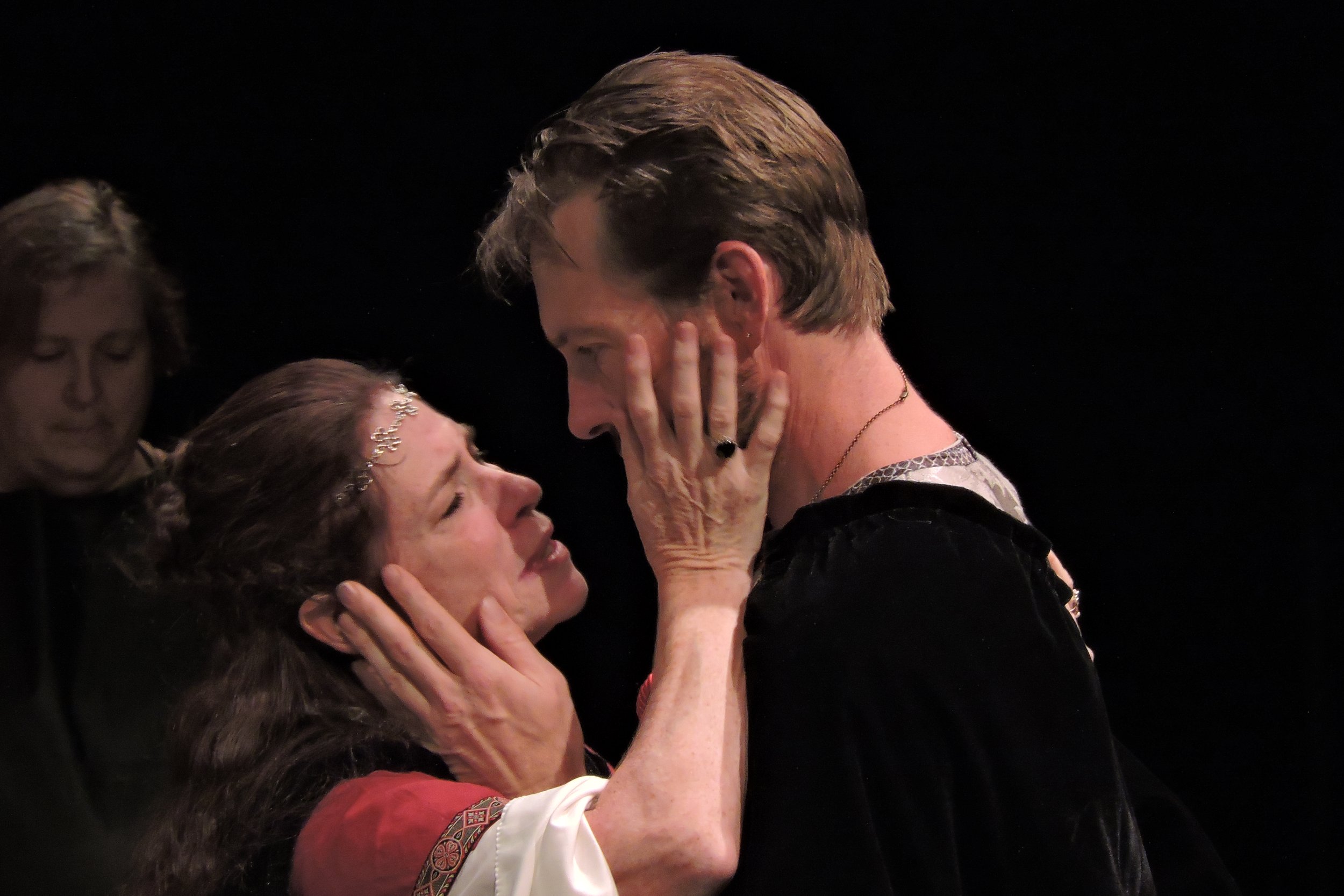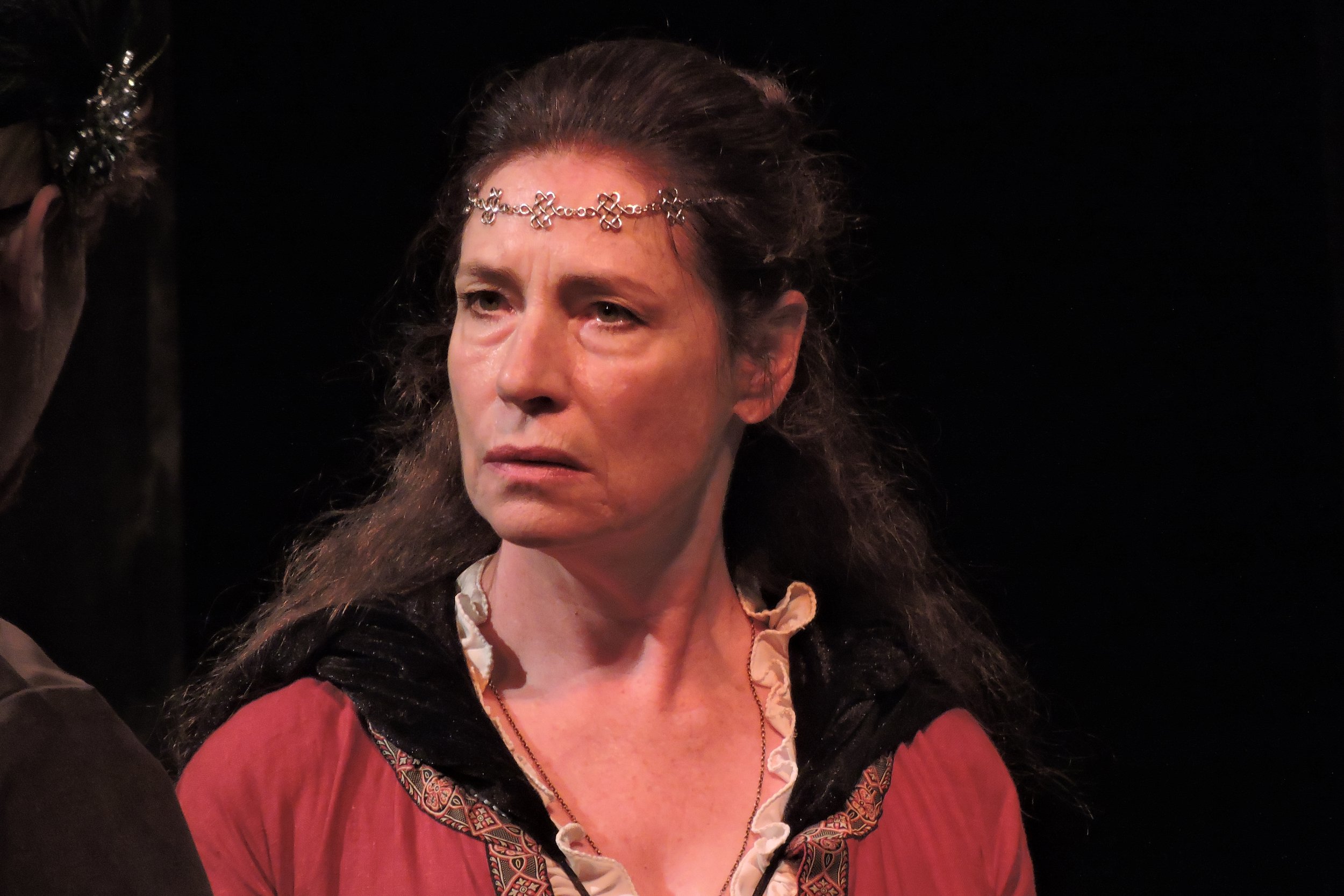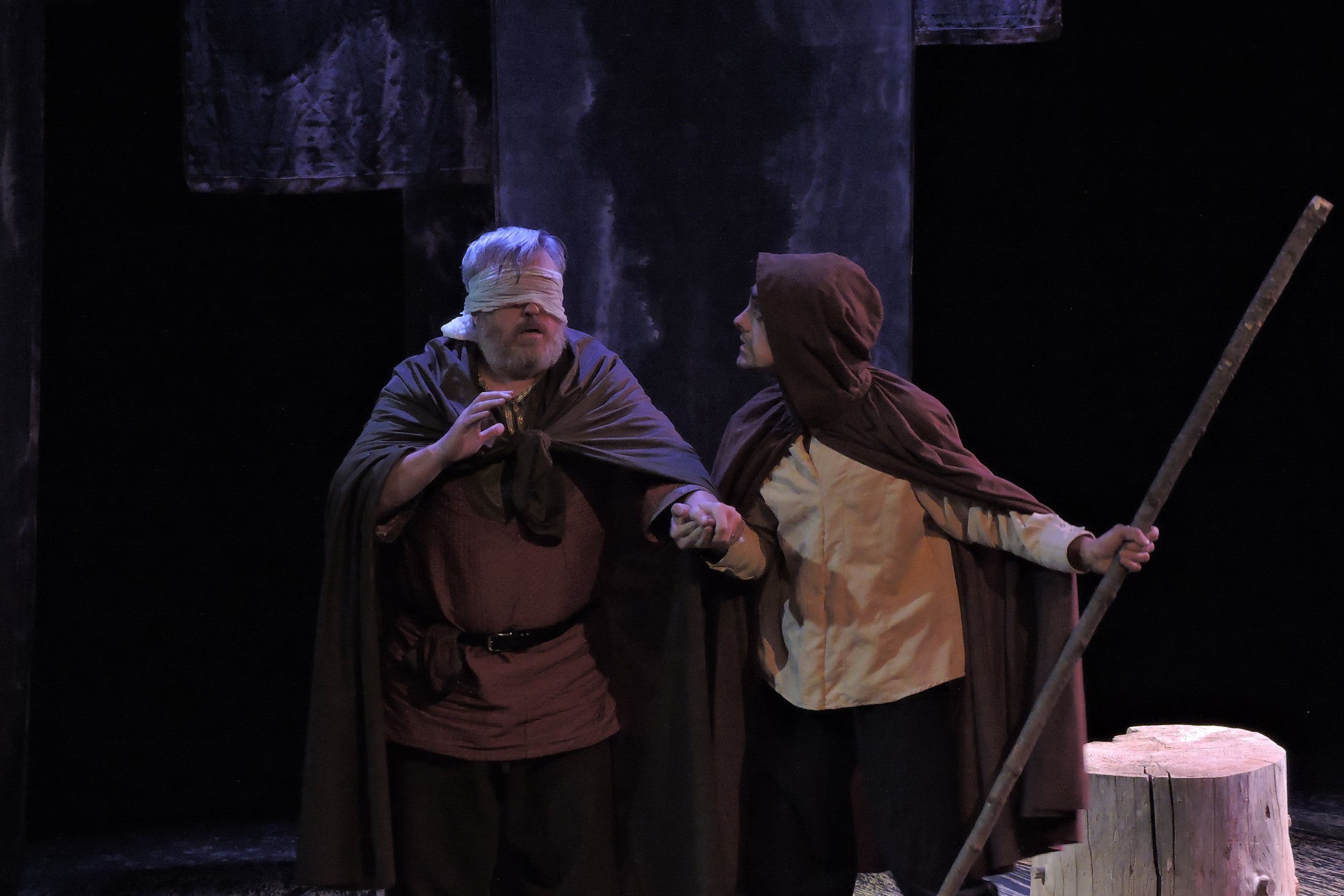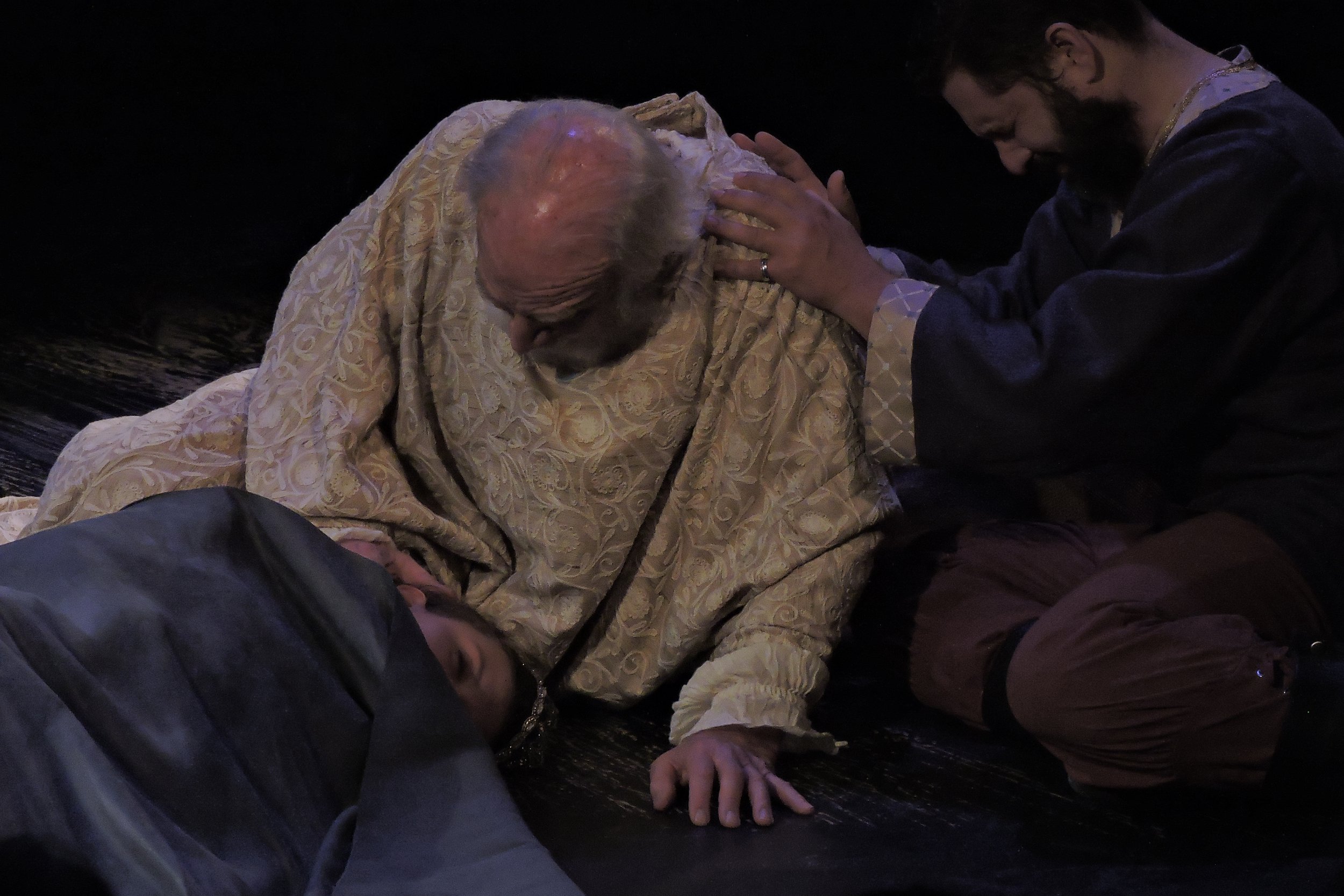
King Lear • 2018
A Year of Lear
To honor the riches and depth of Shakespeare’s King Lear, the ISC chose to spend an entire year on the production. The actors were cast a year in advance and spent six months diving deep into the play with Dr. Robin Williams before starting rehearsals. An event around Lear was created for every month, including a visit from James Shapiro — click here to see a list of most of the events. It was an exciting year! By the time of the performance, we had quite a community of well-informed audience members for sold-out houses.
The poster image of King Lear and his daughters is a linoleum block hand-cut and hand-printed by Tom Leech of the Palace Press in Santa Fe, New Mexico.
Cast
Miles Blitch: Duke of Burgundy, Knight/Gentleman
Mairi Chanel: King of France, Knight/Lear’s Gentleman
Ambrose Ferber: Earl of Kent
***Lynn Goodwin: Goneril
Glenna Hill: Fool
Ariana Karp: Regan
Marc Lynch: Duke of Albany
Marty Madden: Earl of Gloucester
Dylan Marshall: Oswald/Captain
Geoffrey Pomeroy: Edmund
Alex Reid: Edgar
Noah Segard: Duke of Cornwall
Paul Walsky: King Lear
Clara West: Cordelia
***Appeared through the courtesy of Actors’ Equity Association, the Union of Professional Actors and Stage Managers in the United States.
Additional Cast
Harriet Engle: Knight/Attendant/Gentleman, Third Servant/Soldier
Joe Farkas: Knight/Attendant/Soldier
Gen Head: Knight/Attendant
Isaac Marriner: Knight/Attendant
Zoe Marriner: Knight /Attendant
Liam Mitchell: Attendant to France, Knight/2nd Servant/Soldier
Tracey Mitchell: Knight/Soldier
Amy Meilander: Knight/Soldier
Courtney White: Knight/Messenger/Soldier
Production Team
Caryl Farkas: Director
Robin Williams: Dramaturg
Suzanne Cross: Stage Manager
Skip Rapoport: Lighting Designer
Vince Faust: Set Designer
Ariana Karp: Sound Designer
Ambrose Ferber: Fight Director
Joy Farkas: Assistant Stage Manager
Jayden Chavez: Lightboard Operator
Music
Original Music: Composed and with cello performed by Ariana Karp, violin performed by Charlie Hankin.
Director’s Note • Caryl Farkas
An Elizabethan theater goer would have been stunned by Shakespeare’s handling of the well-known account of King Lear. An earlier play had rendered the source material as a comedy, and audiences would likely have heard Kent’s, “Is this the promised end?” both as an obvious remark about the tragic end seeming like the arrival of doomsday and as a comment on the unexpected deep darkness of the story’s conclusion.
Edgar’s rhyming couplets which close the play turn all conventions, even Shakespeare’s own conventions, about closing lines upside down. Confronted with the utter hopelessness and irredeemable state of things at the end of the play—the deaths of every putative villain or hero—Albany’s plan to re-invent the kingdom through the shattered Edgar and suicidal Kent is clearly absurd. Edgar’s last lines bring no closure or promise of any possible positive fulfillment. He simply tells Albany and us that the weight of all this sorrow must be obeyed. We must speak what we feel in this situation, not spout platitudes or pretend things are other than they are.
The recognition that we cannot wish away tragic events, forestall them even when we see them coming, or overcome adversity with a stoic philosophy, underlies the familial and political tragedy of Lear. It is a timely sentiment, and that idea has given this production a special resonance for all of us who have spent the year living and working with this remarkable text.
Over the years I have learned not to sail into a Shakespeare play with preconceptions. The actors will make discoveries, I’ll make discoveries watching them, and Shakespeare will unfold in a way that is unique to the people making the play together. I cannot overstate what a profound and joyous experience it has been to rediscover this play with this group of actors, exploring it first through a close-reading, then in workshops with Rodney Cottier and Edward Daranyi, through numerous ISC-sponsored talks, and finally through the rehearsal process. Profoundly tragic though it is and filled with all that is worst in human nature, this Year of Lear has strangely left me hopeful. I trust that what we have found along the way will make as much of an impression on its viewers as it has on us.
The ISC partners with iReadShakespeare and the production of Shakespeare’s play texts designed specifically for Readers, edited by Dr. Robin Williams. For more info about these Readers’ Editions, go to iReadShakespeare.org.






























